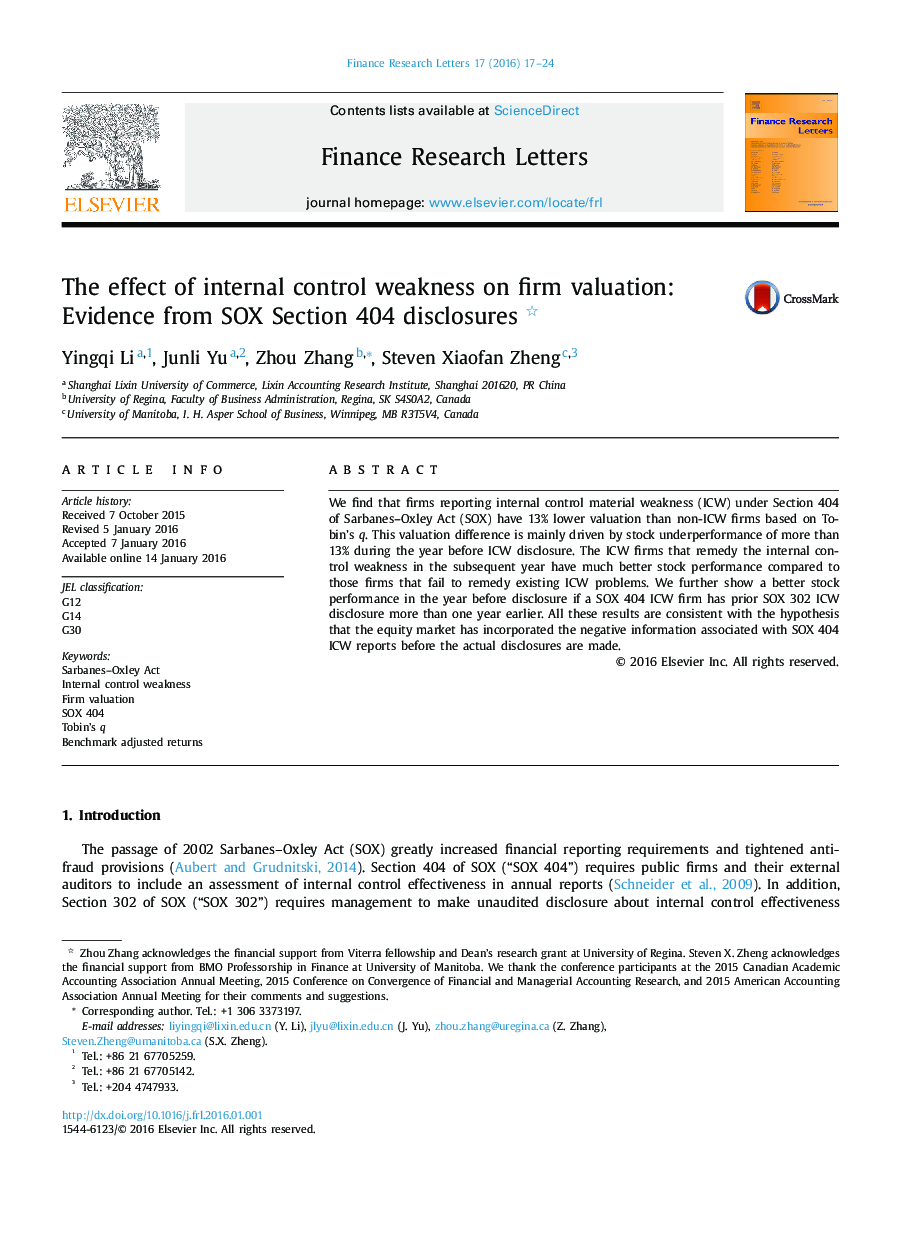| Article ID | Journal | Published Year | Pages | File Type |
|---|---|---|---|---|
| 5069623 | Finance Research Letters | 2016 | 8 Pages |
â¢We examine the effect of internal control weakness (ICW) disclosures on firm valuation.â¢Our results support the early reflection hypothesis rather than lower threshold hypothesis.â¢We show that firms reporting ICW under Section 404 of Sarbanes-Oxley Act have 13% lower valuation than non-ICW firms during the year before ICW disclosure.â¢Our findings imply that the equity market has incorporated the negative information associated with Section 404 ICW reports before the actual disclosures are made.
We find that firms reporting internal control material weakness (ICW) under Section 404 of Sarbanes-Oxley Act (SOX) have 13% lower valuation than non-ICW firms based on Tobin's q. This valuation difference is mainly driven by stock underperformance of more than 13% during the year before ICW disclosure. The ICW firms that remedy the internal control weakness in the subsequent year have much better stock performance compared to those firms that fail to remedy existing ICW problems. We further show a better stock performance in the year before disclosure if a SOX 404 ICW firm has prior SOX 302 ICW disclosure more than one year earlier. All these results are consistent with the hypothesis that the equity market has incorporated the negative information associated with SOX 404 ICW reports before the actual disclosures are made.
